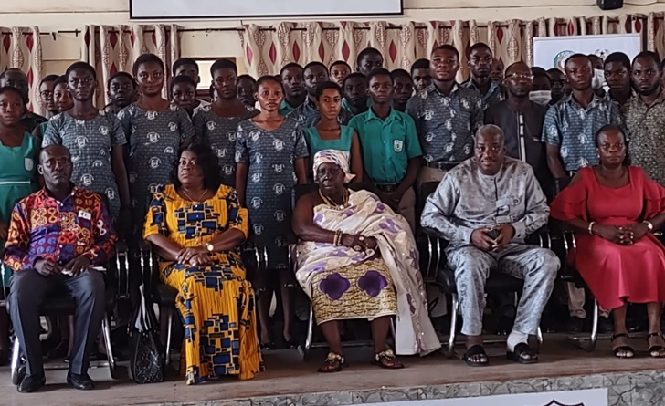
The menace of fruit flies has resulted in the interception and destruction of large quantities of fruits from several African countries at the borders of Europe and other intentional borders and airports, causing economic losses to affected nations.
To address the problem, the Economic Community of West African States (ECOWAS) has embarked on a project tilted: 'Support Project to the Regional Plan for Fruit Flies Monitoring and Control in West Africa.
A training workshop was, therefore, organized for the implementation of the project.
It was organized by the National Fruit Fly Committee (NFFC) of the Plant Protection and Regulatory Services Directorate (PPRSD), Ministry of Agriculture, Ghana.
Welcoming participants to the workshop, the Chairman of NFFC, Professor Kwame Afreh-Nuamah, indicated that the criteria for a country becoming part of the project was to establish a National Fruit Fly Management Committee to be responsible for co-ordinating the implementation of the programme's national aspects in each country.
In a speech read on behalf of the Minister, the Deputy Minister for Food Agriculture, Mr George Odoro, said the fruit fly species Bactrocera dorsalis had emerged as a threat to horticultural production in the ECOWAS sub-region, with major traditional export crops such as fresh mangoes with fruit fly species being intercepted in countries where fruit flies did not occur.
Mr Odoro said as the production and promotion of mangoes as an export commodity for the ECOWAS sub-region heightened, there was an urgent need to strengthen efforts in managing the Tephritidae fruit fly species.
The support project to the regional plan for fruit flies monitoring and control West Africa is made up of four components, namely surveillance, control, research and capacity building.
The Surveillance component aims to contribute to collecting fruit fly data while the control component will create awareness, deploy Integrated Pest Management Strategies (IPM) and implement orchard schools to demonstrate the effectiveness of the fruit fly control technologies.
On research, the component will look at new fruit fly species in ECOWAS countries in order to advice farmers on changes in fruit fly populations and deploy appropriate control strategies, while the capacity building component will strengthen the national committees and train all the actors along the mango value chain.
Under the project, eight ECOWAS countries-- Ghana, Burkina Faso, Benin, Cote d'ivoire, Senegal, The Gambia, Mali and Guinea-- have been approved to monitor and control the fruit fly species in West Africa.
Source: ISD (Aliyah Bayali)
Read Full Story







![Burkina Faso celebrates as Ibrahim Traore unveils made-in-Africa electric buses [Video]](https://sportal365images.com/process/smp-images-production/pulse.com.gh/11062025/8558c966-4f8d-4f59-bd16-80956686e33d.png)











Facebook
Twitter
Pinterest
Instagram
Google+
YouTube
LinkedIn
RSS